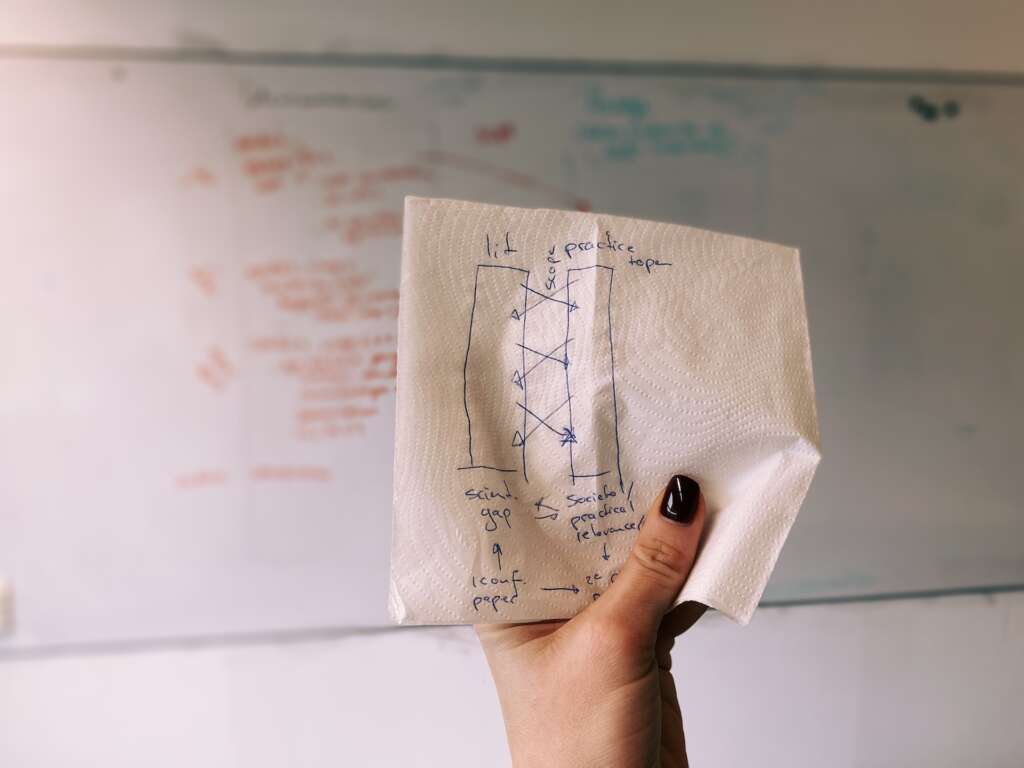Around the turn of the year, I usually write a review of the past year. And this year, of course, it is about my doctoral research.
The 2022 retrospective blog was about how I set up my research on government services that are good for (the) people. Since this year, I have been sharing an update every month with a nice group of readers on how things are going behind the scenes. That actually makes writing this blog more difficult, because I have so much material now. Death by data is what they call it at the university. All right, let’s get to work!
Would you also like an update in your mailbox every month about my research? Then subscribe to my newsletter (in Dutch).
On a beer mat
Every doctoral research project begins with an exploration of what we already know, to build on that. In the spring, I devised a strategy for this with my supervisors. The best strategy should fit on a beer mat, but a napkin will do as well.
The plan is to do a theoretical exploration as well as a practical exploration. That last one is bonus. I already have a lot of practical experience which happens to be neatly documented on this blog. A shame to do nothing with that. These two explorations reinforce each other and together form the basis for further research.
In March, we saw that there was a very interesting conference in the fall that my practical experiences fit perfectly with. Only the deadline was already in April! It may be that I learned how to write a scientific paper in four weeks then, and I actually still need to recover a bit from it. But it worked and the article was also accepted. In October I presented it in Milan and, of course, I wrote a nice little blog for you about the results: trusting the process is not enough. ✅
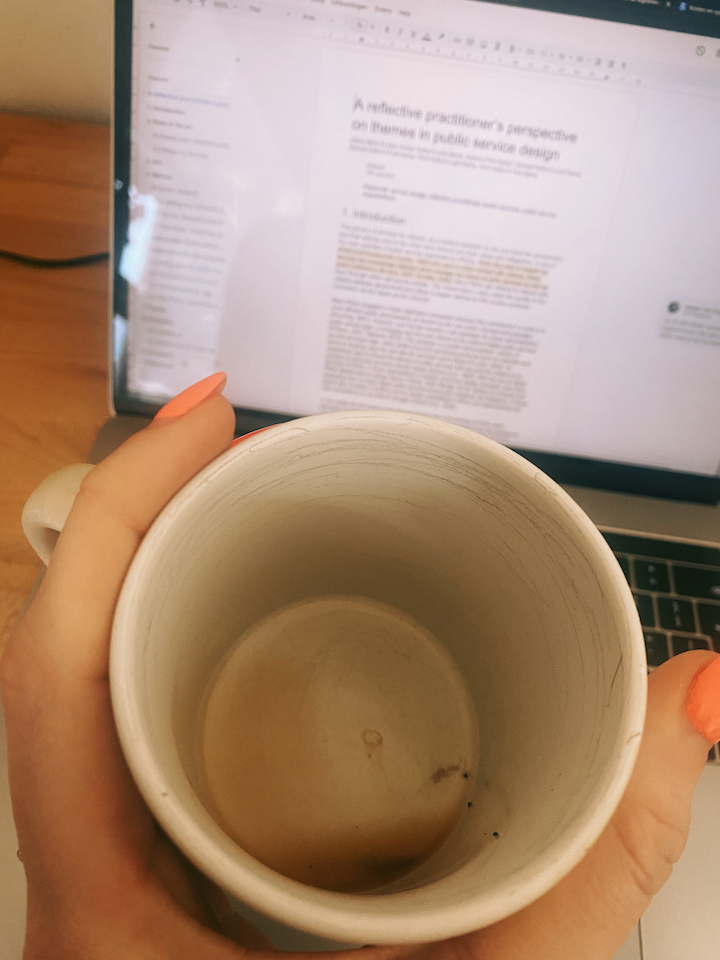

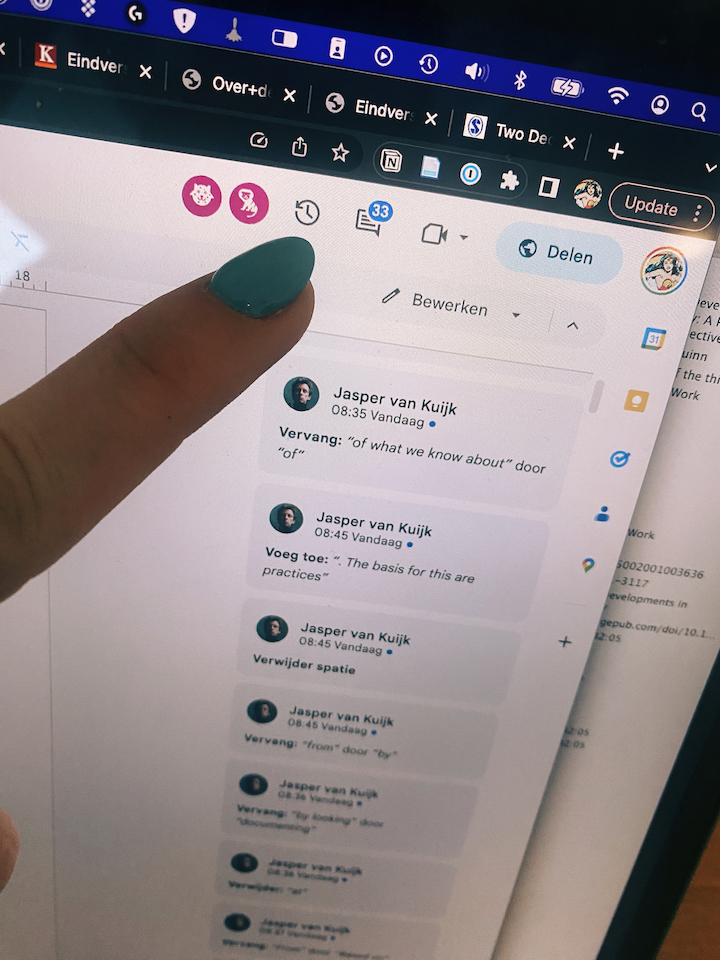
Then the theory
I did/do need more than four weeks for that. And this is an understatement. Wow, how hard I find this. Fortunately, I really like reading and writing, but it’s really different from what I’m used to.
In May, I took a course in Philosophy of Science for PhD students. I learned things that my sister was already learning during her undergraduate degree in college, but with a backhround of an applied college student, it was new to me. The question “what is knowledge?” was central, and the course helped me immensely to read texts more critically and to better substantiate my own arguments.
I wrote several blogs about these first steps in science:
- Welcome to the academic world of public services
- How to survive your first conference
- Reading without a road map
Over the summer, my promotor Maaike Kleinsmann and I spent three days visiting Karlstad University, where Jasper van Kuijk, co-supervisor lives and works. Here we decided to adjust our strategy for theoretical exploration. We cut it into two parts.
Part 1: because my research is actually in three fields, the literature I want to use is also scattered (and a lot!). We are first going to make some good working definitions and properly conceptualize the phenomenon we are studying, government services, from those disciplines. I use this research framework:
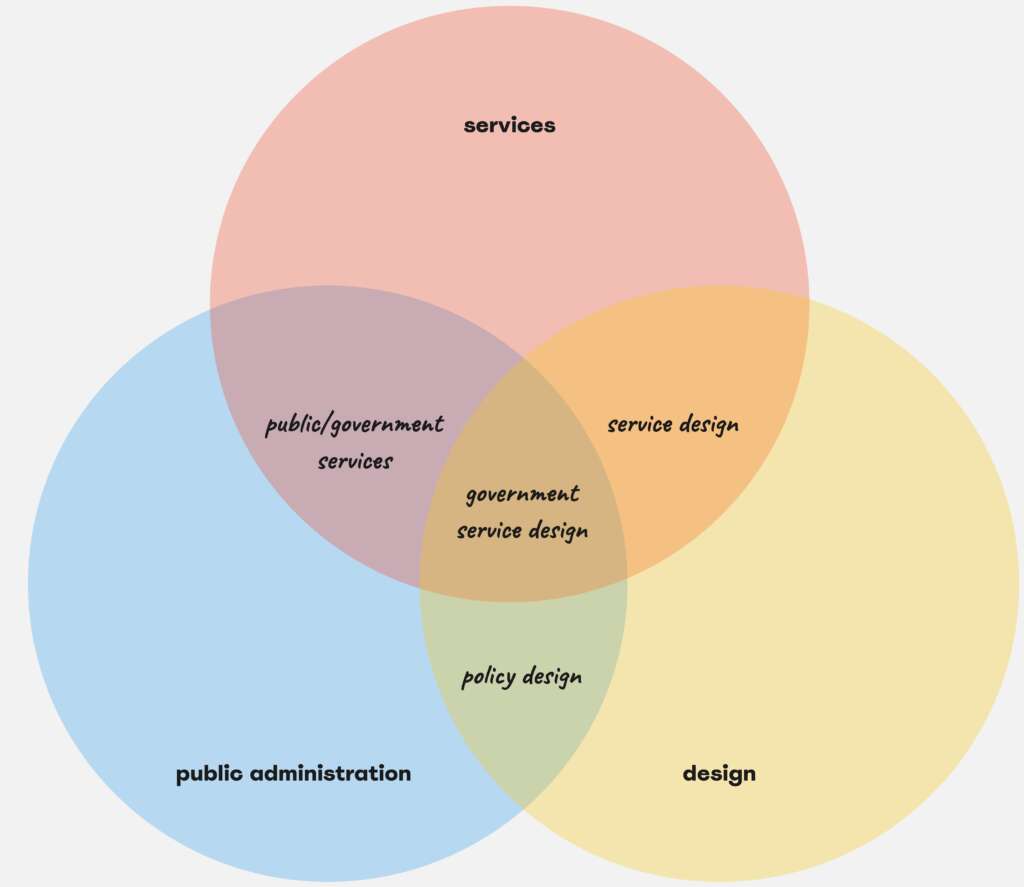
Part 2: then from that inner circle we are going to do a good search for everything that has been explored before me. I’m going to look at different sources:
- case study research on improving government services,
- research about the practices of officials who create and deliver government services, and
- so-called “practitioner self-reports,” you know, those idiots from practice who keep a blog about their work ;). But also organizations that once shared a blog, a case study in their annual report, etc. They are not scientific sources (yet), we call it gray literature, but there is valuable info in them that I would like to have included.
To collect all this, I am going to collaborate with master students. And with you of course, you’ll later hear how. But wait, this is 2024 already, I’m doing a retrospective.
An official GO
In October, I had the 12-month meeting, as we call it in Delft. After the first year, you will present the progress of the first year and show the potential of your research to a committee of the university and an external expert.
It was a super fun conversation, with critical questions about the project and at the end a unanimous recommendation to move forward ✅.
In November and December, I worked on the conceptual framework on government services, and gave a series of presentations at my employer: the Executive Agency of Education (DUO). In fact, I was facilitatied to do this research last year by DUO, and I thought that was really special 🧡.
As an advisor, I thought about how DUO can grow from implementer to service organization. I helped with a number of concrete projects such as how we can set up checks of the move-out scholarship differently. And I ended the year with a workshop on my research for the board and tactical management. I also gave a super short summary at our employee event that you can read back here: Executor and Service Provider.
Working openly
Then I would like to say something about “working in the open” in this study. If you have been reading my blog for some time, you know that I share a lot. I find that super fun and it also helps me think.
I noticed last year that the time lines in science are much longer than in practice. Often I was pondering what to write next, because yes, you spend weeks and months on the same thing. Also, you don’t want to give away too many of your insights on your blog if they still need to be in a scholarly article. But I also don’t want to be a gatekeeper of interesting insights, because that’s exactly what we need in government.
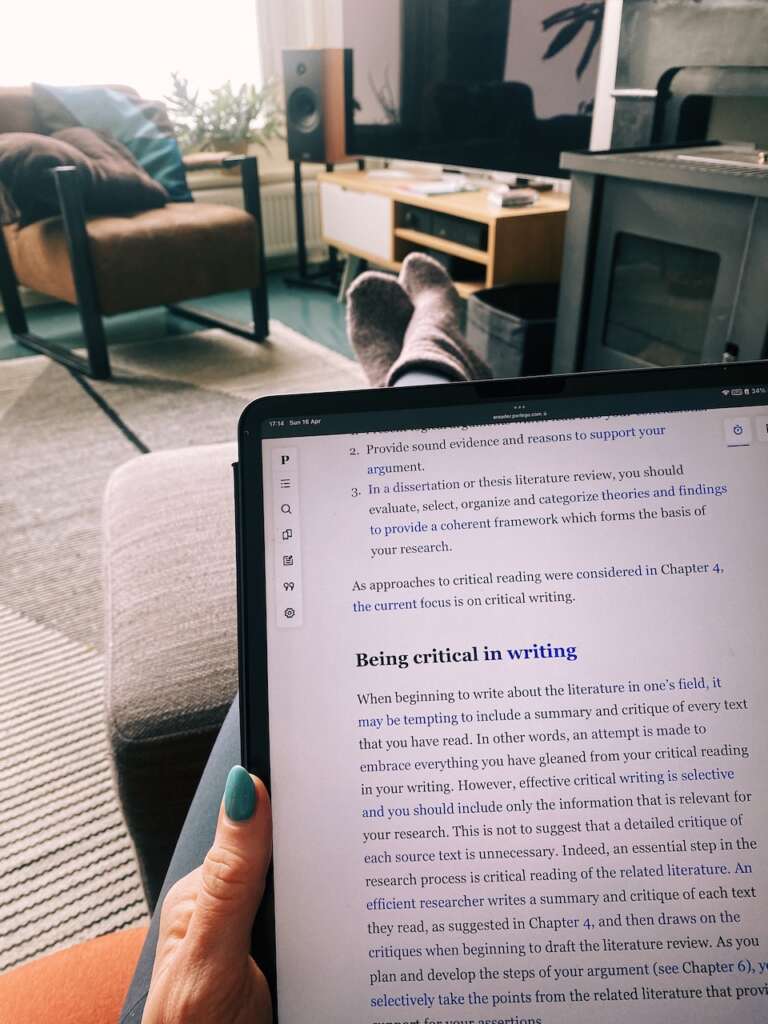
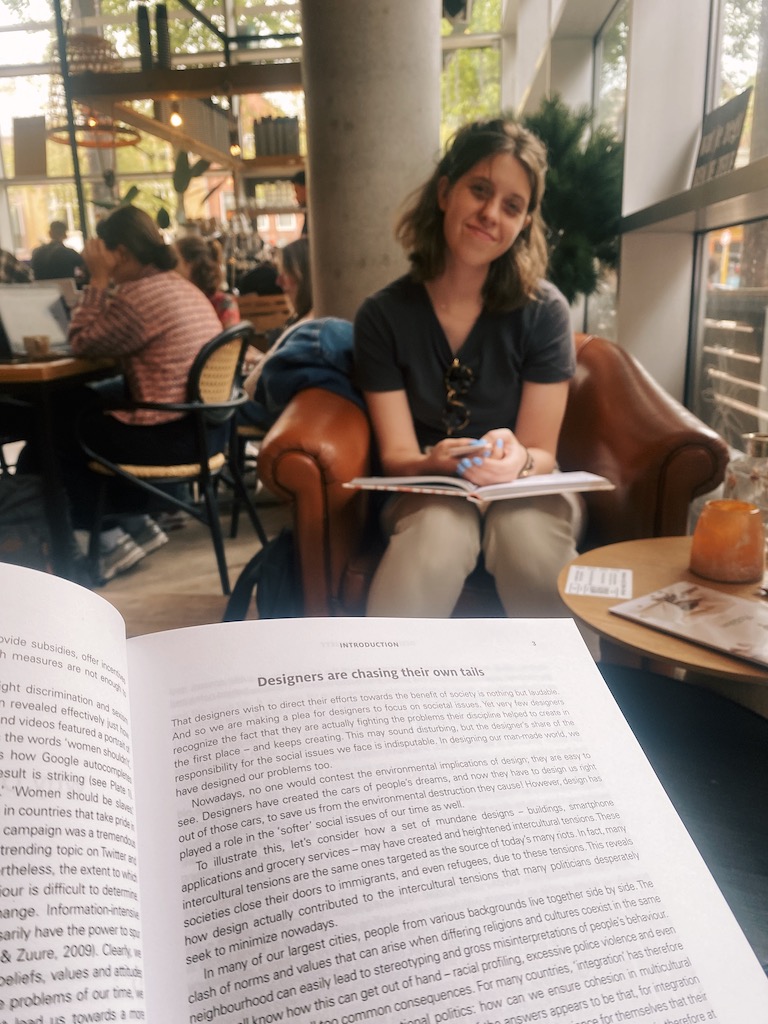

I find it a tricky area of tension at times but I have built it up like this now:
- This blog for short thoughts and to elaborate on something a bit more so that I can ask for feedback from you on it. And of course it will be on the blog as soon as I can share something that is finished.
- The newsletter, where I can ask you questions even more easily, share loose snippets and communicate about the progress.
- My second brain in Notion, parts of which are public and which I share through my newsletter. And parts of which are also nicely not public because it’s not finished yet, I’m free to think there and because occasionally what it says is also just crap.
I find working openly more difficult than when I started blogging. That’s because this is the most difficult project I’ve done so far and I am therefore insecure to share intermediate steps that could also fail. And because there are many more people reading along. Sometimes I miss the time when I was still messing around in a corner of the Internet without anyone noticing and caring.
But by working openly, I also learn a lot from you. Last year, more than ever, I received feedback from you on how certain things are going in your organizations, questions that are prevalent and insights from the field as well as from other scholars (hello, new audience). This is very useful for my research, so I will continue this approach in 2024 ✅.
How it continues, well, you’ll have to follow my newsletter for that or wait patiently for another blog to come online.
Have a good 2024!

